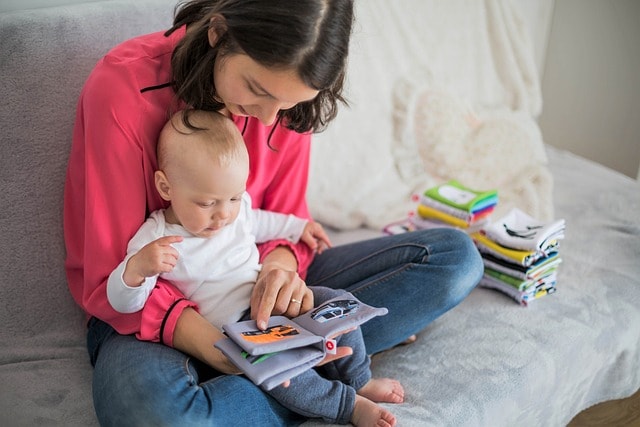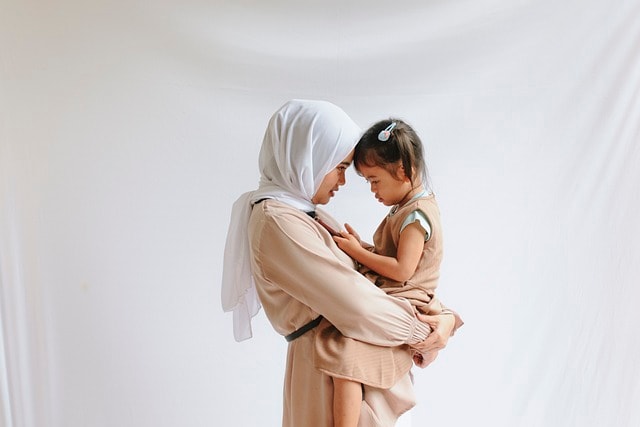What Makes a Good Mother? It’s Not What You Might Think!

Being a mom is tough, isn’t it? And these days, the idea of being a “good mother” seems loaded with more unrealistic expectations than ever. Social media shows us highlight reels of other moms, parenting experts give endless advice, and it’s easy to feel like we’re supposed to be some sort of superhero.
But if you’ve ever wondered if you’re doing enough, or if you’re a good mom, I’m here to tell you that it’s not about perfection at all. Let’s dive into what really makes a good mother—spoiler alert: it’s probably not what you think! Instead, it’s about embracing the essential qualities that truly matter.

1. Embracing Imperfections
Forget the perfect mother fantasy. You know, the one who bakes everything from scratch, never loses her cool, and always has a spotless house?
I’m not sure she even exists. Letting go of that ideal is liberating! So what if you’ve served cereal for dinner once or twice, or sent your kids to school with mismatched socks?
Being a good mom isn’t about being perfect; it’s about loving your kids and being there for them, even when you feel like a mess.
Motherhood isn’t about having it all together. It’s about showing your kids that it’s okay to be human. Kids don’t remember how spotless the house was or if you baked cookies from scratch; they remember the love you shared and the times you showed up, messy bun and all.

2. Providing a Safe and Loving Environment
A good mom makes her kids feel safe and loved, plain and simple. This doesn’t mean having the fanciest nursery or the latest gadgets.
It’s about creating a space where your kids feel secure, loved, and able to be themselves. That could mean consistent routines like bedtime stories or just knowing that mom will be there for a cuddle when they need one.
This environment is built on the foundation of unconditional love, where children feel accepted and cherished no matter what.
Think about it: when your kids walk through the door, they don’t care about designer decor. They want a place where they feel comfortable, accepted, and loved just as they are.
So embrace the beautiful chaos and make your home a safe haven filled with warmth.

3. Showing Up, Even on Hard Days
Some days are hard. Maybe you’ve had a rough day at work, you’re dealing with family stress, or you just didn’t get enough sleep.
Being a good mom doesn’t mean you’re cheerful every second of the day. It means you show up, even when you’re tired, frustrated, or unsure of yourself.
Showing up also means practicing self compassion, understanding that it’s okay to have tough days and still be a good mom.
Kids remember when you’re there for them, even if you’re not at 100%. Whether it’s a bedtime story or just a snuggle on the couch, it’s these moments that matter.
And you know what? It’s okay if sometimes “showing up” means ordering takeout and cuddling on the couch. What counts is that you’re there.

4. Allowing Room for Mistakes—Theirs and Yours
Here’s a secret: good mothers make mistakes. They let their kids make mistakes, too. Mistakes are how we all learn and grow.
Instead of beating yourself up for not knowing the “right” answer all the time, remember that your kids are learning from how you handle your own challenges.
Being a good mother means letting go of the need to be perfect and embracing the value of resilience. When you show your kids that it’s okay to mess up and try again, you’re giving them a gift they’ll carry for life.
So the next time you spill coffee on yourself, or your child spills their milk, take a breath and embrace the beauty of imperfection.

5. Prioritizing Self-Care
“You can’t pour from an empty cup.” We’ve all heard it, but let’s be honest: it’s hard to prioritize yourself when you’re a mom.
But here’s the thing—taking care of yourself makes you a better mom. It gives you the energy, patience, and positivity that you need to keep up with life’s challenges.
Balancing self-care with parenting responsibilities is crucial for maintaining your well-being and being the best mom you can be.
Self-care doesn’t have to be a luxury spa day (although that sounds amazing, right?).
It can be as simple as having a quiet cup of coffee before everyone wakes up, saying “no” when you’re stretched thin, or letting someone else handle bedtime once in a while.
Self-care is anything that recharges your spirit and reminds you that you’re more than just a mom. You’re a person, too, and you matter.

6. Nurturing Individual Interests and Talents
Every child is unique, and a good mom recognizes that. Encouraging your kids to explore their own interests and talents helps them grow into confident, happy individuals.
Maybe your child loves painting, or maybe they’re passionate about soccer. Whatever it is, support it. Sometimes their interests might even surprise you (who knew a five-year-old could be so obsessed with dinosaurs?).
Adapting your parenting style to support your child’s unique interests helps them thrive.
When you nurture their individuality, you’re teaching them that they’re valued for who they are. They learn that they don’t have to fit a mold, and that their mom is their biggest cheerleader, even if their dreams aren’t what you’d imagined.

7. Embracing Flexibility
Motherhood requires a level of flexibility that rivals a gymnast! Plans change, things come up, and kids keep you on your toes.
Being a really good wife and mother doesn’t mean having everything under control all the time. Sometimes, it means adapting and going with the flow.
Flexibility also means being able to listen actively to your children’s needs and adjusting your approach accordingly.
Maybe you had a whole Saturday planned, but now you’re stuck at home because your toddler came down with a cold.
Or maybe dinner didn’t go as planned, so it’s breakfast for dinner. Being able to laugh and adapt to these changes is what keeps us sane.
Flexibility shows our kids that it’s okay when things don’t go perfectly, and that sometimes, the best memories come from the unexpected.

8. Being a Lifelong Learner
No one has all the answers. A good mother doesn’t pretend to be perfect; she grows alongside her kids. Maybe you read parenting books, listen to podcasts, or get advice from friends.
Being open to learning new things and evolving as a parent is one of the best gifts you can give your family. Remember, not everyone will understand your parenting journey, and that’s okay.
Kids change, parenting challenges change, and a good mom adapts. Whether it’s learning how to navigate the teen years or figuring out toddler tantrums, we’re all learning as we go. And that’s okay. Growth is a beautiful part of motherhood.

9. Setting Boundaries with Love
Boundaries help kids understand respect and responsibility, and they give moms a sense of structure in the chaos. Setting limits isn’t about being the “bad guy” or controlling everything; it’s about creating a space where everyone feels secure.
Good mothers set boundaries out of love, showing their kids that they’re worth protecting and guiding. Boundaries teach them about consequences and prepare them for the real world.
Boundaries might look like saying “no” to screen time after a certain hour, or teaching them to respect others’ belongings.

10. Trusting Your Instincts
At the end of the day, you know your kids better than anyone else. Trusting your instincts is one of the best things you can do as a mother.
There’s advice everywhere—some of it’s great, and some just doesn’t fit. That’s okay. Listen to your gut because every mother-child bond is unique.
Parenting isn’t about ticking boxes or following every piece of advice out there. It’s about listening to that little voice that tells you what’s right for you and your kids.
Trusting your instincts is one of the essential qualities that makes you a more confident, connected, and relaxed mom.

11. Emotional Intelligence
Emotional intelligence is a cornerstone of being a good mother. It’s about understanding and managing your own emotions while also tuning into your children’s feelings.
When you can empathize with your kids, validate their emotions, and guide them through their emotional ups and downs, you’re creating a nurturing environment that fosters trust and openness.
Imagine your child comes home upset because of a disagreement with a friend.
Instead of brushing it off or immediately trying to fix it, you take a moment to listen and understand their feelings. You acknowledge their hurt and help them navigate their emotions.
This not only helps them feel heard and valued but also teaches them how to manage their own emotions.
By modeling healthy emotional regulation, you’re equipping your children with the tools they need to handle stress, anxiety, and other challenging emotions, ultimately contributing to their overall well-being.

12. Active Listening
Active listening is a superpower for any good mother. It’s more than just hearing words; it’s about fully engaging with your child, paying attention to their words, tone, and body language, and responding in a way that shows you truly understand and care.
When you practice active listening, your children feel heard, validated, and understood, which strengthens your bond and builds trust.
Picture this: your child is excitedly telling you about their day at school.
Instead of nodding absentmindedly while scrolling through your phone, you put the phone down, make eye contact, and listen.
You ask questions, show interest, and respond thoughtfully.
This simple act of active listening not only makes your child feel valued but also teaches them the importance of effective communication.
They learn to express themselves clearly, listen to others, and resolve conflicts, creating a more positive and supportive family environment.

13. Empowering Your Child
Empowering your child is a vital aspect of being a good mother. It’s about giving them the autonomy to make choices, take risks, and learn from their mistakes.
When you empower your child, you help them develop self-confidence, self-esteem, and a sense of responsibility, which are essential for building a positive and resilient identity.
Think about the times when you’ve let your child decide what to wear, even if it meant mismatched socks or a superhero costume to the grocery store. These moments of autonomy help them feel in control and capable.
By providing them with the tools and resources they need to succeed—whether it’s educational support, guidance, or just a listening ear—you’re helping them develop problem-solving skills, critical thinking, and creativity.
Empowering your child means trusting them to navigate the challenges of life, knowing that you’re there to support them every step of the way.

14. Fostering a Positive Relationship
Fostering a positive relationship with your child is a critical quality of a good mother. It’s about creating a nurturing environment built on mutual respect, trust, and open communication.
When you foster a positive relationship, you help your child develop a positive self-image, self-esteem, and emotional well-being.
Consider the times you’ve sat down with your child to talk about their day, their dreams, or their worries. These moments of connection build a foundation of trust and respect.
By modeling healthy relationship skills—like empathy, active listening, and conflict resolution—you’re teaching your child how to build strong, healthy relationships with others.
Whether it’s with friends, family members, or future romantic partners, the skills they learn from you will help them navigate relationships throughout their life.
A good mother knows that fostering a positive relationship makes all the difference in her child’s well-being and happiness.
By integrating these qualities into your daily life, you’re not just being a good mother; you’re being a great mom who makes a lasting impact on your children’s lives.

Conclusion
So, what makes a good mother? It’s not about being perfect, having all the answers, or never making mistakes. It’s about love, flexibility, resilience, and being there through the highs and lows.
Motherhood is a journey, not a destination, and you’re doing an amazing job.
Mother’s Day often brings reflections on these pressures, but it’s important to embrace your own truth and authenticity as a mother.
So, let go of the pressures and perfection, trust your instincts, and remember that every little moment of love you give makes you a great mom.
And if you’re still wondering, let me remind you one last time: if you’re reading this, you’re already doing a fantastic job.

FAQ: What Makes a Good Mother?
Q: What are the qualities of a good mother?
A: A good mother isn’t defined by perfection but by love, support, and presence. Key qualities include showing up on hard days, providing a safe and loving environment, embracing imperfections, setting boundaries, and nurturing her child’s unique personality. She values self-care, stays flexible, learns alongside her children, and trusts her instincts. A good mother creates a home filled with warmth and encourages her children to be themselves.
Q: What are the 10 responsibilities of a mother?
A: While each mother’s responsibilities can differ, here are ten meaningful roles a mother might play:
- Providing a loving and safe environment.
- Supporting her children’s interests and talents.
- Setting and maintaining healthy boundaries.
- Nurturing her children’s emotional well-being.
- Teaching resilience by handling her own mistakes with grace.
- Showing up even when times are tough.
- Taking care of her own well-being to model self-care.
- Encouraging growth by being a lifelong learner.
- Building flexibility to handle unexpected situations.
- Offering unconditional love and support.
Q: What characteristic of a mother can be best?
A: Every mother brings her own unique strengths to the role, but one of the most impactful characteristics is unconditional love. This love is the foundation for everything else—a mother who loves unconditionally creates a secure base for her children, instilling confidence, resilience, and trust.
Q: What is a definition of a good mother?
A: A good mother is someone who supports, loves, and nurtures her children while embracing her own imperfections. She creates a safe, loving space, adapts to challenges, and encourages her children’s individuality. A good mother isn’t perfect; she is present, compassionate, and does her best each day. Her love, flexibility, and willingness to learn make her truly valuable in her children’s lives.







This was a wonderful list of advice for being the best Mom from so many wonderful Moms out there! It left me feeling encouraged and empowered to carry on in the nuttiness of motherhood.
My favorites were Thrifty Mom’s “clean bum, full tum” haha and Mummy Cat Note’s advice on always believing in your children. I try to do that when my toddler gets so frustrated all the time when she can’t put her clothes and shoes on like she wants.
Thanks for this post! Sharing it now!
Brooke
Great post I’ve spent a long time thinking about what being a good mum is and I don’t think there is a right answer as long as you love them and support them through everything. I try to take a relaxed form of parenting as much as I can! #readysetlink
Hopefully, I think I can tick some of these off 🙂 #readysetlink
What a great group of advisors you have 🙂 I love the comments about honesty and saying sorry when you mess up. I think modeling the behavior you expect from your kids is pretty high up there for being a good mom. #readysetlink
Really interesting read, I think it is something I worry about a lot and be at myself up. It is hard because there is no definite answer, but loving and listening to your child is important. Don’t always listen but something I am working on X #readysetlink
A great read! As a first time mum I often wonder if I am doing the right thing or if I could be a better mum. Reading this really makes me feel a lot better as I know I have some of these qualities/do these things. 🙂 #readysetlink
I liked everyone’s advice. I think this question is so hard because society puts so much pressure on moms. Also social media doesn’t always help, people only post (for the most part) the good things, and not post images of them yelling at their kids or crying in their bedroom. So it makes moms that do this (which is pretty much every mom I know) feel like they aren’t good moms because they lose their patients. I think it just comes down to you loving your child, and they are as healthy and happy as you can make them.
thank you for sharing this!
I think that making an enviorment with the things you didn’t have when you were a kid, I don’t mean material things.
So true. Kids need lots of love xx